Proposal for actions to improve the social networks of the Islazul hotel group
Propuesta de acciones para la mejora de las redes sociales del grupo hotelero Islazul
Main Article Content
Abstract
Social networks are a fundamental tool in the tourism sector that have been developed in the present. Its use makes it easier to bring information to millions of people in a matter of seconds. Companies that opt for their employment have great opportunities to position themselves in the market, improve their marketing and therefore increase their income. The present investigation starts from the identification of the need to improve the activity within the social networks in the Islazul Hotel Group. The management of these social networks is messy, with little activity, lack of knowledge about their use and even a shortage of personnel to develop the activities. In this way, the objective is to propose actions to improve the management in the social networks of the Islazul Hotel Group and in this way achieve a better positioning in the national tourist scenario and strengthen the international market. Depending on its compliance, theoretical methods were applied: historical-logical, hypothetical-deductive and analysis and synthesis; tools where interviews with specialists prevailed, followed by an observation guide that led to an analysis of the environment that allowed an approach to the current situation of said activity.
Downloads
Article Details
References (SEE)
Avirato. (2022). La importancia de las redes sociales para tu hotel.https://avirato.com/la-importancia-de-las-redes-sociales-para-tu-hotel-y-comoavirato-puede-ayudarte-a-sacarle-el-mayor-partido-a-estos-canales-decomunicación/
Beltrán, M. A., Concepción, M. y María, J. (2017). Las redes sociales aplicadas al sector hotelero. International journal of scientific management and tourism, 3(2). https://dialnet.unirioja.es/servlet/articulo?codigo=6132930
Bordón, C. D. (2022). Impacto del uso de las redes sociales como estrategia de marketing en empresas del sector hotelero de la ciudad de Pilar. Revista Ciencia Latina, 6(3), 17-36. https://ciencialatina.org/index.php/cienciala/article/view/2892
Calderín, Y. y Velastegui, L.E. (2021). Diagnóstico de la situación del portal de turismo Cubatravel para la promoción del destino Cuba. Revista Alfa Publicaciones, 3(3), 30-50. https://doi.org/10.33262/ap.v3i3.2.96
Hernández, Y., Sánchez, Y., Hernández, F., & Proaño, C. (2022). Acciones estratégicas para la gestión del marketing digital en el “Café Real”. Magazine De Las Ciencias: Revista De Investigación E Innovación, 7(2), 1–14. https://doi.org/10.33262/rmc.v7i2.2324
Gascó, M. (2022). El impacto de las redes sociales en el Sector del Turismo desde las perspectivas del turista. Alicante. (Tesis de Grado). España. http://rua.ua.es/dspace/handle/10045/124019
PCC. (2016). Lineamientos de la Política Económica y Social de Partido y la Revolución. https://planipolis.iiep.unesco.org/es/node/6696
Ramos, Y., Contreras, S. y Pérez, N. (2018). Gestión De la reputación Online en el sector Hotelero Cubano. [Tesis de Maestría]. Universidad Central de Las Villas.
Ruiz, D. (2018). El uso de las redes sociales de Internet en los Grupos hoteleros: Cubanacán, Gaviota e Islazul. [Tesis de Diploma]. Universidad de La Habana.
Torres, M. L. (2023). Estudio de casos de éxito y fracaso de emprendedores a raíz del COVID-19 en Bucaramanga y su área metropolitana. Región Científica, 2(1). https://doi.org/10.58763/rc202332








